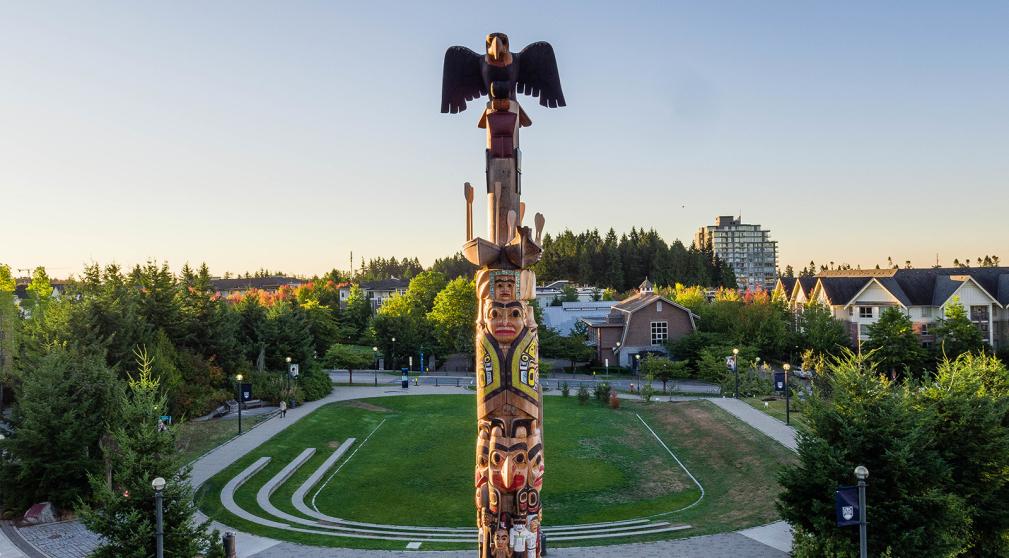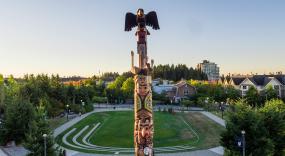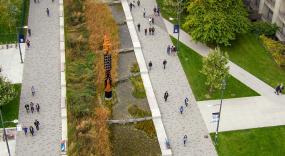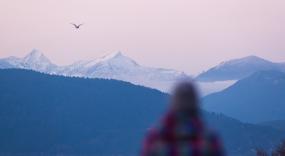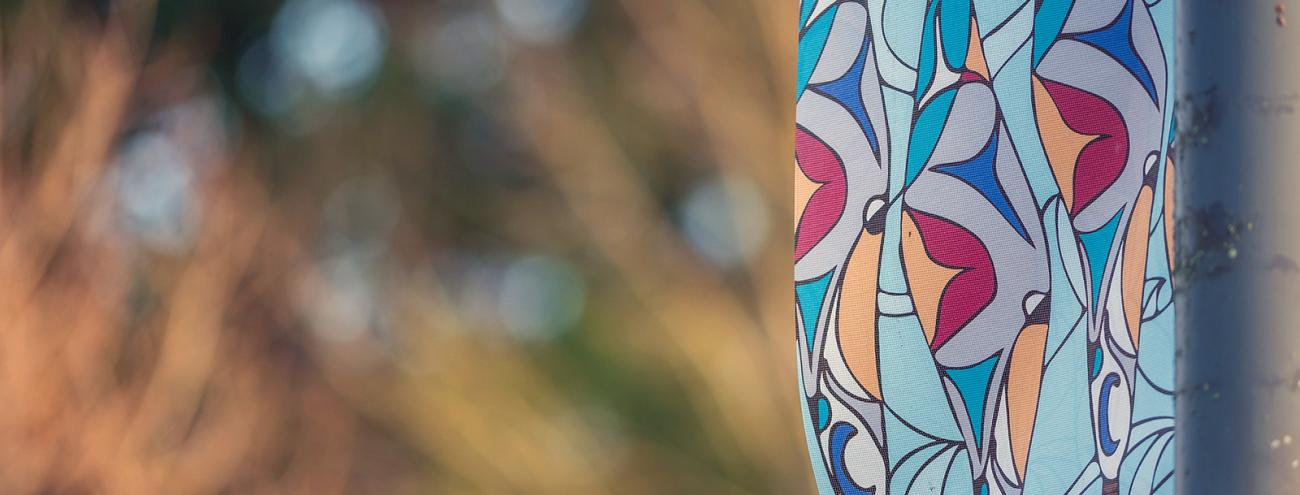
(Re)imagining Indigenous Centred UBC Campus Recreation
This project approaches Campus as a Living Lab and Place. Also referred to as simply, Campus as a Living Place. It aspires to re-imagine UBC recreation through an Indigenous sense of place, where the campus is a vibrant and interconnected meeting place that is open to the community.
Project team
Faculty Lead: Dr. Jan Hare, Indigenous Education
Staff Lead: Dr. Moss Norman, Kinesiology
Post-secondary institutions are deeply implicated in colonial practices that shape teaching, research, and relations with Indigenous communities. For many Indigenous students, staff and faculty, university campuses can be experienced as bounded and alienating — if not hostile — spaces that separate them from their culture, family and community. These separations can undermine their sense of belonging, success and wellbeing.
Recreation and athletics, often a significant part of the university extra-curricular experience, are not exempt from these experiences. However, they could be recreated to play a meaningful role in strengthening community and supporting the wellbeing of Indigenous student, faculty and staff.
Research shows that fostering culturally safe and inclusive recreation spaces not only addresses systemic oppression but also enables Indigenous individuals to reconnect with their cultural values through physical activity and sport, fostering holistic wellbeing and community strength1.
This project aims to decolonize settler colonial understandings of campus space through empowering Indigenous knowledge, with a focus on university recreation places and activities. More specifically, it sets out to answer the question: how do we create sustainable, culturally-safe and inclusive Indigenous-centered place-based campus recreation?
The importance of relational accountability in Indigenous recreation is underscored by Métis methodologies like wahkootowin (kinship) and kiyokewin (visiting), which emphasize strong relationships as a foundation for cultural sustainability and wellbeing2. The ReImagining Indigenous-centred recreation project will engage a network of staff, students, faculty and community individuals and organizations in a series of conversations and knowledge sharing activities, following local indigenous practices. The discussion will guide and inform the development of a framework for socially and culturally sustainable Indigenous-centred campus recreation.
Many university campuses are undergoing what anthropologist Keith Basso calls “place making,” a retrospective world-building where the land and each place in the landscape “conjures up everything that ever happened there…mak[ing] it present again in the community”3.
The project responds to several priority calls to action within UBC’s Indigenous Strategic Plan to undertake this work at UBC. It is part of the process to decolonize campus space and to advance and support Indigenous self-determination through socially and culturally sustainable practices.
The experience and knowledge gained from this project could help inform similar efforts at other universities and education institutions.
____________________
